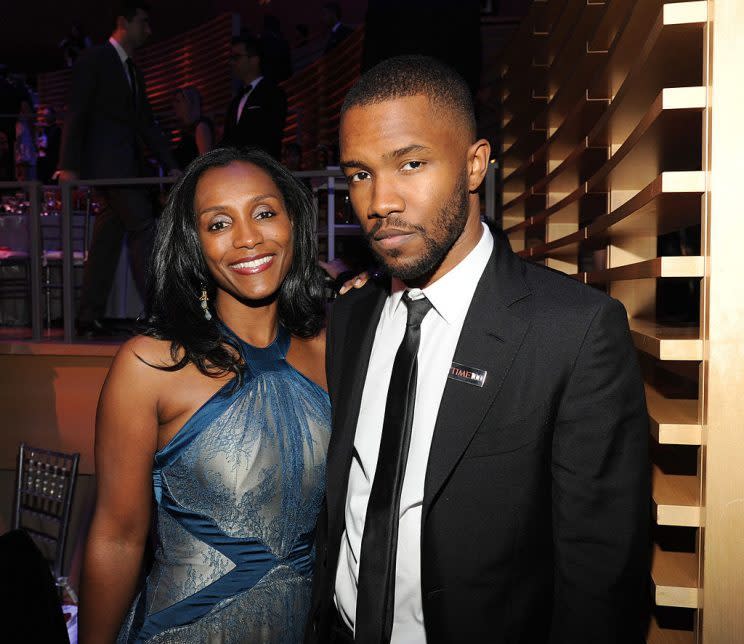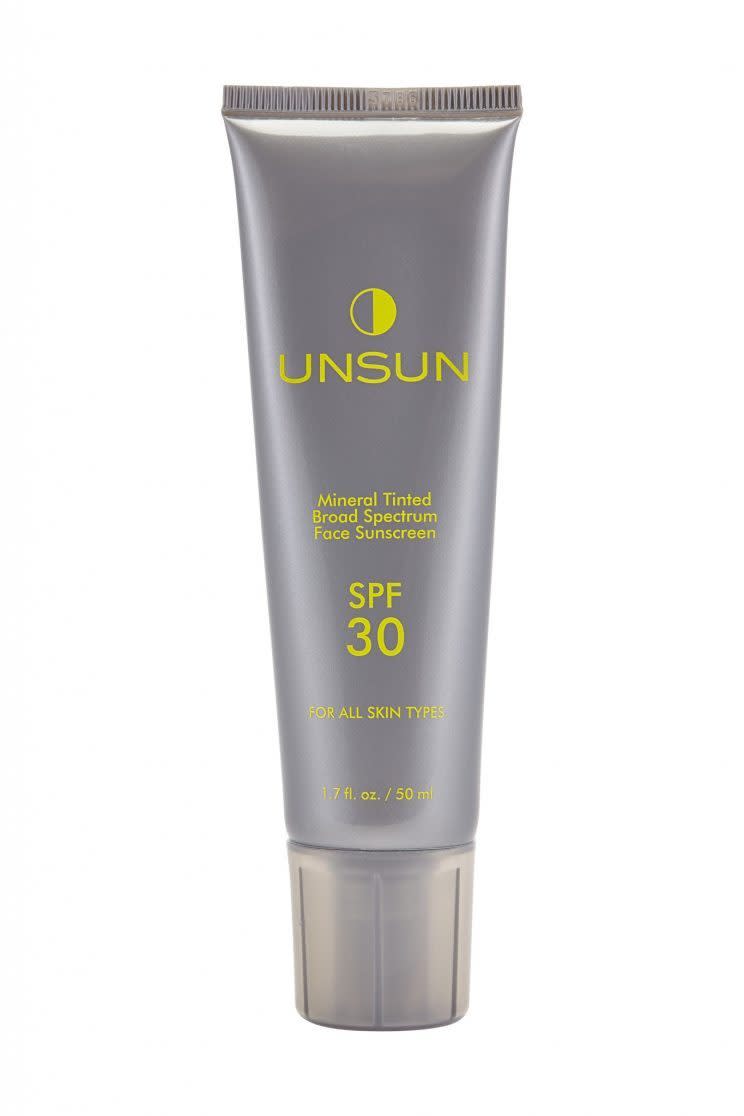Frank Ocean’s Mom, Katonya Breaux, Is Bringing Attention to This Skin Issue

There is a dangerous misconception about melanin and sun protection surrounding people of color: That the presence of melanin in the skin provides enough sun protection make using sunscreen unnecessary, but that is not the case.
“We grow up thinking that we don’t need it because of our complexion and melanin and [our African ancestry] and the sun,” Katonya Breaux explains over the phone. “The reality is that we are built in a natural SPF factor of about 12 to 13 percent; that gives us about 15 minutes of protection. But that’s it. Afterwards we are just as susceptible to sun damage as anyone else. You know, it’s not as quickly as a redhead, but we get sun damage as well.” It’s that misconception that Breaux, who happens to also be the mother of singer/songwriter/rapper Frank Ocean, hopes to fight with her cosmetics brand Unsun, launched in April.
Science backs Breaux up. “Melanin does provide protection but only minimally, about an SPF 15. Ultraviolet rays still have the potential to damage skin and lead to often undiagnosed skin cancers. African Americans do need to protect their skin with sunscreen, at least SPF 30,” writes Dr. Marshelya D. Wilson, MD, on Sharecare.com.
“When I was growing up, I had this one Marilyn Monroe mole next to my mouth,” Breaux explains while recounting the origin story of Los Angeles-based brand, which currently only offers a $29 SPF30 sunscreen. “I’d darken it a little bit to make it a little bigger, but you know, one day I woke up and I noticed that I had eight moles all of a sudden. It made that one mole nothing special, so I went to the dermatologist and asked what was going on with my skin. I was still young — I was probably 32, maybe. She said it was genetics and sun damage. At that point I was like, I don’t need to know anything more.” From then on, wearing sunscreen became a habit for Breaux. “If you look at my skin now as opposed to what it was then, I have about the same amount of moles.”
It’s not just Breaux who has had issues related to sun damage. At only 36, Bob Marley died from melanoma. In fact, acral lentiginous melanoma, which is what Marley suffered from, occurs highest in people of color.
Breaux’s own relationship with sunscreen evolved, though. At first, just using sunscreen was sufficient, but over time she began to educate herself on the product. Side effects like watery eyes from the chemicals used in some formulas pushed her to more natural options. Many sunscreens are white and leave unattractive white smears on the skin. While some people cover this with makeup, makeup isn’t a daily thing for her. In 2013 she sent out a tweet to voice her frustrations, and within months was connected with a lab. “It really and truly started out of a need that I had personally,” she says.
Can someone make brown sunscreen? Please! Must I look like a clown to protect my skin? #blackfolkburntoo
— katonya breaux (@katonya) May 16, 2013
While it hasn’t been an easy road — Breaux calls it a “learning process,” as she had previously been in construction and suddenly found herself dealing with FDA requirements and regulations — it does fulfill an important need. Actress Kerry Washington has recently picked up the baton on education, in her ambassador role for Neutrogena.
“I think there’s a myth in communities of color, whether it’s Latina women, or those with olive-toned skin, or African American women,” Washington told Women’s Health. “People who have skin tones that have more pigment tend to think they’re less at risk. But we actually have become more vulnerable because of the thinking that we don’t have to be careful. And we’re lagging behind in being able to protect ourselves.”

It’s not just people of color that can benefit. Unsun is meant for all tones. “We have a mineral tint in our sunscreen that’s really quite universal,” she explains. “I’m chocolate brown, so this is designed for me, but when I put it on my friends who are fair skinned it just gives them a bronzy glow, so it’s such a universally appealing product.”
And she isn’t stopping there. To build out a full sun-protection brand, Unsun has a lip product and body lotion in the works, both with an SPF rating. “A body lotion is really complicated because we are struggling with the consistency,” she says. “The ones out with SPF now are sticky and gummy because it’s the nature of the product. It’s one thing when you’re doing your hands and your face and stuff, but at least for me, when I’m doing my whole body I want something more creamy, so we’re spending more time on that to get it really great. Sunscreen is also honestly a little expensive to put everywhere, so we need a more cost-effective option.” And who better than a black woman to bring it to us?
Let’s keep in touch! Follow Yahoo Beauty on Facebook, Twitter, Instagram, and Pinterest.

